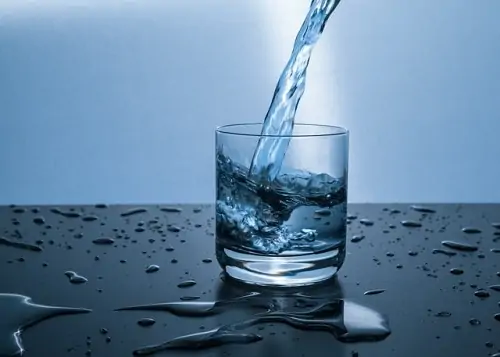Blog
Are Sports Drinks Bad For Teeth?

Sports drinks are the beverage of choice for many after exercise or spending a long day in the hot weather. While these electrolyte-packed drinks can help replenish the body with minerals lost through sweat, they can also be bad for teeth. Join your dentist in Douglasville as we take a look at how these beverages can cause irreversible damage to your teeth.
This Time, It’s Not The Sugar
Some people choose to drink sports beverages in place of soda because they don’t contain as much sugar. Now, while it’s still very true that sugar can contribute to oral health problems, this time, we’re more concerned with the acid found in many sports drinks.
Acidic foods and drinks damage tooth enamel, and once enamel is gone… it’s gone. This is concerning for your dentist in Douglasville. Tooth enamel serves as a layer of protection against bacteria, and without it, bacteria have full reign over your teeth. These bacteria will work their way into tiny crevices and feed on leftover food particles and sugars. They will then release acid as part of their digestion process. And the cycle repeats. More acid means more risk for enamel loss and more risk for dental problems.
Cavities & More
Acid and bacteria are a recipe for decay and cavities. When a cavity is new, it’s usually easy to treat with a dental filling. However, if the decay is not treated by your dentist in Douglasville, it will continue to eat away at the tooth. Deeper areas of decay may require a root canal and perhaps a dental crown to stop the progression and save your tooth. But if not treated, an infection can develop, or the tooth may need to be extracted.
Signs of a Cavity
Early treatment is the best way to protect your tooth and stop decay. If you notice any signs of a cavity, see your dentist in Douglasville promptly. Signs include:
- Sensitivity to heat, cold, or sweets
- Discoloration
- Toothaches
- Pain when biting
- Holes or pits on the tooth surface
The next time you’re looking to quench your thirst, we always recommend choosing water. However, if you need that extra level of hydration and electrolytes, try drinking your sports drink with a straw. This will help limit the amount of acid that comes in contact with your teeth.
As always, brushing and flossing your teeth every day and seeing your dentist twice a year will also help protect your teeth and overall oral health.
Can Allergies Make Your Teeth Hurt?

The season of spring is officially upon us. But that’s not the only season affecting us nowadays. It’s also allergy season. For many people, allergy season can be brutally annoying. The stuffy nose, the itchy eyes and throat, and the sneezing can make it hard to breathe. But did you know that allergies may also contribute to tooth pain and other dental problems? Let’s take a look at what your dentist in Douglasville has to say about allergies and your oral health.
Congestion & Tooth Pain
Saying that allergies cause tooth pain can seem like a stretch, but your dentist in Douglasville knows just how true it can be. When you’re congested, such as when your allergies are in full bloom, your maxillary sinuses are packed with pressure. This can make your head or face feel full like a balloon. Your back molars may also experience some pain. Why does that happen? Well, since the roots and nerves of those back teeth are so close to the maxillary sinuses, sinus inflammation can put pressure on the nerves and cause discomfort. Unfortunately, dental concerns with allergies don’t end there.
Stuffy Nose & Oral Health
The traditional side effects of allergies are annoying enough, but some secondary symptoms concern your dentist in Douglasville. One of the hallmarks of an allergy flare is a stuffy, drippy nose. A stuffy nose happens when there’s too much mucus production. While mucus is normal, too much of it can block up the nasal airways and make it hard to breathe out of the nose. As a result, allergy sufferers will start to breathe out of their mouths. Now, while this doesn’t seem like a big deal, chronic mouth breathing can contribute to some serious dental problems.
Mouth Breathing & Dental Problems
We understand that you need to breathe, so if your nose is stuffed up and you need to breathe out of your mouth, that’s ok. But long-term mouth breathing can cause long-term problems. Mouth breathing tends to dry out salivary glands and leave the mouth feeling as dry as a desert, also appropriately known as dry mouth. Dry mouth is uncomfortable, but it can also put someone at risk for cavities, bad breath, and gum disease. You see, saliva is responsible for rinsing away bad breath and cavity-causing bacteria. Without it, these bacteria are left behind to attack tooth enamel. Bacteria are the main contributors to bad breath, cavity development, and gum disease.
Treat Your Allergies, Save Your Smile
During allergy season, it’s important to treat symptoms as best as you can to avoid discomfort and protect your teeth from pain and the effects of mouth breathing. Find a medication that works for you and stick to it. You should also talk with your dentist in Douglasville about seasonal allergies or other allergies.
Can Acid Reflux Make Your Teeth Hurt?

Almost all of us are familiar with the discomfort and pain associated with acid reflux, also known as GERD, or commonly described as indigestion or heartburn. But can something that originates in the stomach and affects digestion also make your teeth hurt? Your dentist in Douglasville is here to tell you that yes, acid reflux can make your teeth hurt and can even cause irreversible damage to your pearly whites.
Acid Reflux & Dental Health
Acid reflux, GER, GERD, heartburn, and indigestion are all similar in symptoms and are often used interchangeably to describe the same thing. Let’s get on the same page and refer to it as one thing in this blog — acid reflux. Acid reflux occurs when the stomach acids responsible for breaking down foods work their way up into the esophagus. The result is a burning, often painful sensation in the chest. But it can also affect the teeth.
Acid is one of the most concerning things for your dentist in Douglasville. It can easily wear away at that super-strong protective layer of tooth enamel and leave teeth at increased risk of decay and cavities. If not caught early, the damage caused by acid reflux may be irreversible or difficult to treat. However, when your dentist identifies the damage early, your teeth may be treated with fillings, a crown, or bonding.
Signs of Acid Reflux
Many people can experience acid reflux differently, but some of the most common signs include:
- Heartburn
- Bad breath
- Acidic taste in the mouth
- Difficulty swallowing
- Tooth sensitivity
It’s important to note that dental damage caused by acid reflux may not be noticeable, especially in the early stages. This is yet another reason why it’s so important to see your dentist in Douglasville regularly.
How to Protect Your Teeth
If you have acid reflux, you may be thinking that it’s only a matter of time before the acid gets the best of your teeth. But that’s not necessarily true. There are many medications available that can help reduce how often you experience symptoms of acid reflux. A gastroenterologist can help you find the best one for you. Outside of medication, your dentist may recommend some other things you can do to protect your teeth against stomach acid, such as:
- Avoiding acidic foods and drinks
- Limiting spicy or sour foods
- Chewing sugar-free gum
- Brushing and flossing every day
- Swishing your mouth with water after eating
- Drinking plenty of water throughout the day
- Waiting an hour to brush your teeth after you eat or drink something acidic
As with many dental problems, early detection is key. Make sure you visit your dentist twice a year for checkups and cleanings so any potential problems can be treated early, when success is more likely, and when long-term damage is minimized.
19
Apr
4 Things You Can Do If You’re Feeling Self-Conscious About Your Smile

Whether you have an important event coming up or you’re just tired of seeing your tired smile every day on work video calls, there’s a cosmetic dentistry solution for you. Thanks to advancements in technology, cosmetic dentistry is more affordable than ever before and is no longer only for celebrities. In fact, these treatments are some of the most commonly completed by your dentist in Douglasville. Don’t wait to get the smile of your dreams, check out a few easy ways you can transform your smile.
What is Cosmetic Dentistry?
According to the American Academy of Cosmetic Dentistry, cosmetic dentistry is “dentistry aimed at creating a positive change to your teeth and your smile.” But that can mean different things to different people, which is why there are several different types of cosmetic dentistry solutions available in Douglasville depending on your specific needs and wants.
- Smile Whitening – The most common type of cosmetic dentistry completed by dentists (and even sometimes by patients at home) is smile whitening. This treatment can whiten the appearance of teeth and create a dazzling white smile. However, not all smile whitening is created equally. Professional, in-office smile whitening with your dentist in Douglasville can transform your smile’s color in just one visit, whereas other methods take several treatments. Either way, we always recommend talking with your dentist before starting any smile whitening treatment to make sure it’s the right solution for you and that your teeth are healthy enough. Sometimes tooth stains are too deep and won’t be fixed by smile whitening alone. So, before you spend money on over-the-counter strips, make sure your type of tooth discoloration can be improved with whitening.
- Veneers – If traditional smile whitening treatments aren’t for you, don’t fret, we have other options – one of which is dental veneers. These thin pieces of porcelain can whiten teeth, cover up chips or breaks, and fill in gaps. They’re custom-created to seamlessly flow with your teeth and can transform your smile.
- Bonding – Outside of discoloration, other cosmetic concerns may include chips, breaks, or gaps. When appropriate, dental bonding can be used to fix all of these ailments. Your dentist in Douglasville can complete a dental procedure quickly and easily and can give you a smile you’re confident about.
- Smile Makeovers – Sometimes your dentist will recommend a combination of cosmetic dentistry services (and often restorative dentistry treatments) to achieve the smile you’re looking for. This is known as a smile makeover and can be life-changing. Your dentist will carefully plan the stages of your transformation and make sure you’re involved every step of the way.
We don’t want anyone to feel self-conscious about their smile, and we’re always happy to help. If you’ve been hiding your smile, have an area that bothers you, or simply wish that something looked different, call to schedule a cosmetic dentistry consultation with us today!
Nutrition & Oral Health

Even though your dentist in Douglasville is all about keeping your mouth healthy, the truth is, proper nutrition and good oral health go hand-in-hand. This is why, during this National Nutrition Month, we want to do our part to raise awareness of the importance of eating right.
On A Nutrition Mission
When it comes to nutrition and eating healthy, it can seem simple from the surface — don’t eat too much sugar, eat your vegetables, limit fast foods. But when taking a deeper look into what the experts recommend, it can get pretty complicated. After all, even the United States Department of Agriculture (USDA) changed their recommendations twice since the Food Guide Pyramid was created in 1992. But healthcare professionals across the country, from dietitians to your dentist in Douglasville, are on a mission to make nutrition easier to understand.
The truth is, not all of us need the same things in the same quantities. Like many things, nutrition is individualized and is based on a number of factors such as age, gender, height, weight, activity level, and underlying health concerns. The best way to find out your nutritional needs is to go to MyPlate and customize the best mix of dietary recommendations for you.
Eat Well, Smile Happy
We all know that what we eat can affect our overall health and either increase or decrease our risk for certain diseases and health concerns. But your dentist in Douglasville wants you to know that what you eat also affects your oral health. In fact, many of the types of foods that can negatively affect our overall health can do the same for our teeth and include:
- Sugary Sweets
- Carbohydrates
- Fatty Foods
- Acidic Drinks
Foods or drinks that contain a lot of sugar, are high in carbs or fats, and foods and drinks that are acidic can damage tooth enamel and leave teeth exposed and at risk for decay.
The Hidden Sugar Effect
Many patients know that your dentist in Douglasville will caution people about the risks of sugary foods. However, a lot of us aren’t aware of why your dentist may also tell you to take it easy on the carbs. Even though high-carb foods don’t taste sweet, they have something called “the hidden sugar effect” which breaks carbs down into simple sugars and can affect your teeth in a similar way as sugar-packed sweets.
Foods For Teeth
When you’re planning your meals and snacks based on your MyPlate results, don’t forget to choose some foods that can help keep your teeth strong and decay-free. Some foods for teeth include:
- Dairy products such as cheese, milk, and yogurt
- Crunchy vegetables like carrots and celery
- Lean meats and fatty fish
- Water
During this National Nutrition Month, find your ideal balance of the major food groups and try to fit your individual recommendations in each and every day. Eating a well-balanced diet can go a long way in helping your body, and your mouth, stay healthy.
How Do I Know If Tooth Pain Is Serious?

Any type of ongoing tooth pain usually means something isn’t quite right. But does that mean every toothache requires a visit to your dentist in Douglasville? The short answer — probably. However, if your pain lasts for 2 or more days, isn’t reduced with painkillers, and is paired with swelling or a bad taste in your mouth, you need to get to a dentist.
Understanding Different Types of Tooth Pain
Different types of tooth pain could indicate different types of problems, and it’s important to know what various feelings could mean. Being able to explain your pain to your dentist in Douglasville can help find the underlying cause and get you treated and out of pain quickly. The following pain descriptors are to be used for informational purposes only and should not be used to diagnose any problem. Always see your dentist.
Dull, Chronic Ache
A constant, dull ache is the most common type of toothache and could be a sign of anything from a piece of food lodged in your gums or between your teeth to an abscess. This type of pain can also be a sign of tooth grinding. If not treated, grinding your teeth can lead to broken or chipped teeth and TMJ disorder. You may be able to get relief by gently flossing your teeth to remove a leftover food particle, but if that doesn’t work you should see your dentist for a more thorough evaluation.
Hot/Cold Sensitivity
A lot of people have sensitive teeth, and sometimes it’s managed well by using the right toothpaste and regular cleanings. But extreme sensitivity to hot or cold things may also be a sign of something more serious. Tooth sensitivity that doesn’t go away after about 30 seconds could indicate gum disease, tooth decay, worn enamel, or fractured teeth.
Thumping, Throbbing
Constant throbbing tooth pain can be a major distraction and keep you from doing other things such as working productively and sleeping. If it doesn’t go away it may be a sign of a cracked tooth, dying nerve, abscess or other infection, or an oral lesion. Call your dentist to find out and get relief.
Sharp Pain
A sharp, stabbing pain always requires a visit to your dentist and will most likely require some sort of restorative dentistry treatment. Sharp pain could mean you have a cavity, a cracked or broken tooth, or you have an old dental restoration such as a crown or filling that needs attention.
As we mentioned before, any type of tooth pain typically means something isn’t right and you should see your dentist in Douglasville for an exam, diagnosis, and treatment plan sooner rather than later.
Pandemic Stress & Oral Health Problems

As we head into the one-year mark of this pandemic, there are still several unknowns. But one thing has remained constant the whole time — stress levels are high, and rightfully so. Stress isn’t the best thing for health, especially at times like these. Prolonged periods of high stress can put us at increased risk for heart disease, actually make our immune systems less effective, and cause some unwanted gut problems. That’s not all. Dentists have also noticed an increase in oral health problems the past year, including this dentist featured in the New York Times. In today’s blog, your dentist in Douglasville explores some ways how stress can affect your oral health.
Chipped or Broken Teeth
You know how your body reacts kind of automatically when you’re stressed out? Maybe you start to sweat even though you’re not hot. Or perhaps your heart starts beating so fast it’s all you can hear. These and other subconscious reactions happen, and they’re not always so obvious. In fact, sometimes we don’t even notice that our body reacted at all. One great example of this is when we grind or clench our teeth. Many times we’re not even aware that we’re doing it, but it can certainly cause trouble. The constant pressure of teeth on teeth during clenching or grinding can cause tooth damage such as chips, cracks, or breaks and will require treatment from your dentist in Douglasville.
Jaw Pain
Unfortunately, the problems with clenching and grinding don’t end with damaged teeth. These repeated motions over and over again can start to cause jaw pain as the muscles in the jaw joint are overworked. If this happens over a long period of time, this can develop into TMJ disorder, and the pain can become severe and lead to other problems such as headaches, neck pain, and difficulty chewing.
Gum Disease
Now, besides the problems associated with clenching and grinding, there’s also the risk of gum disease. Gum disease is an infection in the gum tissue and is usually caused by poor dental hygiene or tobacco use. However, stress may also increase the risk of developing gum disease. Your dentist in Douglasville can treat gum disease if it’s caught early, but if the disease becomes more severe it also becomes irreversible. Untreated advanced gum disease can cause tooth loss and increase the risk of heart disease, kidney disease, and some cancers.
Canker Sores
It’s important to note that scientists have yet to determine one absolute cause of canker sores. But research conducted by the Academy of General Dentistry suggests a possible correlation between high levels of stress and the development of canker sores. Even though these painful bumps may be a little bit painful and a lot bit annoying, they’re not contagious or dangerous and should go away on their own.
Lower Your Stress, Lower Your Risk
We know it’s hard to lower your stress levels, especially nowadays, but we can’t stress enough just how important it is to try different ways to live as stress-free of a life as possible to lower your risk of health problems. Some ways to reduce stress include:
- Getting Enough Sleep. We need to sleep in order to recover and keep our bodies functioning properly. Aim for 8 hours a day and follow a regular routine of waking up at the same time every day.
- Exercising Every Day. Whatever your exercise of choice is, try to do it every day. Hop on a bike. Go for a walk. Do some high-intensity interval training. Just get sweating. Exercise has been proven to release endorphins which can decrease stress and keep us healthy.
- Breathing It Out. Meditation has been used for centuries as a stress-reduction tactic. Find a quiet space, focus on your breath, and clear your mind to lower heart rate, blood pressure, and help you relax.
Everyone is different, but try to find a stress-reduction technique that works for you and practice it every day. Your body, mind, and overall health will thank you for it.
How to Prevent Tooth Staining

Many everyday things can cause tooth staining, from your daily cup of coffee to your nightly glass of red wine. But don’t worry, your dentist in Douglasville has some good news. You don’t necessarily need to stop enjoying all the things that can stain your teeth. In fact, there are several things you can do to help prevent or reduce tooth staining from happening in the first place.
Brush After Eating
There are tons of foods and drinks that can cause tooth discoloration, including wine, pasta sauce, coffee, and soft drinks. In fact, the longer a staining agent is left around, the more serious the stain can be, and the harder it can be to remove. But if you’re diligent about brushing your teeth after every meal, you can reduce tooth staining.
When in Doubt, Rinse Your Mouth
Let’s face it, there are going to be times when you don’t have a toothbrush readily available or when you simply won’t be able to brush your teeth after a meal. When this happens, the next best thing to do is rinse your mouth out with water. Water can help neutralize acids that can lead to decay and, in turn, discoloration, and it can also wash away any staining agents from your dinner.
Use the Right Tools
If you know you consume a lot of things that can stain your teeth, you may benefit from using a whitening toothpaste as well as an electric toothbrush. Whitening toothpaste can effectively remove surface stains but you should make sure to use one that has the ADA Seal of Acceptance. These kinds of toothpaste have been evaluated, for both safety and efficacy. Additionally, using an electric toothbrush may help you brush your teeth more efficiently and remove stains, bacteria, and plaque. Talk with your dentist in Douglasville to find the best toothpaste and toothbrush for your teeth.
Stick to a Straw
When you’re drinking tooth-staining liquids you can actually reduce the amount of staining by simply choosing to drink with a straw. Sipping through a straw reduces the amount of liquid that comes in contact with your teeth, as well as the amount of time the liquid has on your teeth, therefore reducing the likelihood of staining.
While these tips can help reduce tooth staining, the fact of the matter is nothing will ever completely eliminate it. Over time, our teeth will become dull even if we follow the above suggestions perfectly. But there’s good news. Your dentist in Douglasville has cosmetic dentistry treatments available to help whiten teeth or cover up stains.
If you’re looking for ways to get a whiter smile, we welcome you to contact us today.
Whole-Body Benefits of Good Oral Health

You may have heard the saying that the eyes are the window to the soul. While that may be true, your dentist in Douglasville wants you to know that the mouth is in fact the window to overall health. Years of research continues to show just how important oral health is to overall health and how issues with your teeth or gums could increase your risk for more severe health issues elsewhere in your body, which makes proper oral hygiene even more important.
What Oral Health Can Say About Overall Health
Your mouth can actually give your dentist in Douglasville a glimpse at what may be happening in other areas of your body. Several whole-body problems can even first show signs in the mouth before anywhere else… and before you even suspect a problem. In fact, according to the Academy of General Dentistry, more than 90% of all systemic diseases display symptoms in the mouth including:
- HIV/AIDS
- Diabetes
- Kidney Disease
- Oral Cancer
Seeing your dentist in Douglasville regularly can help catch these problems early and get you into treatment sooner.
Gum Disease & Your Health
The connection between oral health and overall health doesn’t end there and goes even deeper to show a link between gum disease and other diseases throughout the body. According to the Mayo Clinic, gum disease is often related to other health issues such as:
- Diabetes
- Cardiovascular disease
- Preterm births
- Pneumonia
- Alzheimer’s disease and dementia
Protect Your Teeth, Protect Your Health
Having good oral health clearly has whole-body benefits, so it’s more important than ever to practice good oral hygiene habits. Make sure to:
- Brush your teeth for two minutes, twice a day.
- Floss daily to remove bacteria from hard-to-reach places that brushing alone won’t reach.
- Keep sugary foods and drinks to a minimum and focus on eating a diet rich with vegetables, fruits, whole grains, and proteins.
- Avoid tobacco use.
- See your dentist every six months.
If it’s been a while since you’ve seen a dentist, we’re here to help. Our welcoming team is dedicated to caring for each and every one of our patients, no matter what. There is no judgment in our office, only genuine care and an unwavering commitment to oral and overall health. Call today to schedule an appointment.
October is National Dental Hygiene Month

Every October, the American Dental Hygienists’ Association and Colgate sponsor a month-long celebration for dental hygienists around the country. Dental hygienists are crucial members of your healthcare team and are responsible for keeping patients’ mouths (and bodies) healthy. This year, the theme for National Dental Hygiene Month is Faces of Courage, and rightfully so. Join your dentist in Douglasville as we celebrate our dental hygienists by sharing just what they do and promote how you can become one yourself.
Duties of a Dental Hygienist
Your dental hygienist plays a key role in helping your mouth stay healthy and cavity and disease-free. They’re also often the first line of defense as well as the first person you’ll meet with when you visit your dentist in Douglasville. Even though the main responsibility of a dental hygienist is to clean teeth, they also do a lot more including:
1) Cleaning Teeth – Let’s talk about the most obvious responsibility of a dental hygienist — cleaning teeth. Now, even though you may brush and floss every day, the cleaning you get from your hygienist is different than the one you get at home. Hygienists are trained to gently remove plaque and tartar buildup that a regular brushing won’t touch, which gives you a super-clean feel and super-protected mouth.
2) Learning About Your Health – But as we’ve mentioned before, your dental hygienist does so much more than clean your teeth. One of those additional duties is learning and getting to know each and every patient on a personal level. This means your hygienist will often talk with you about your oral health and overall health history, discuss concerns you may have, and review medications or ailments. Doing so allows them to both know you better and treat you better every time you visit your dentist in Douglasville.
3) Educating Patients – Our dental hygienists are passionate about teeth and are committed to doing everything they can to help patients stay healthy. They’re always quick to offer up tips on the best way to brush your teeth, how to floss, and can even tell you what products to use so you can maintain excellent oral health.
4) Focusing on Prevention – There’s a good reason we recommend a dental cleaning every six months — to prevent problems from happening in the first place. To do this, your hygienist will often apply fluoride or sealants to protect teeth from the damaging effects of acids and bacteria.
Keep in mind, different states and different regions have different rules, so some of these responsibilities can change from area to area and office to office.
How Many Years Does it Take to Become a Dental Hygienist?
Depending on the program and degree level, it takes anywhere between 2-4 years to become a dental hygienist. Dental hygienists must complete at least two years of schooling at a community college, technical school, or university. Usually a hygienist will earn an associate’s degree, but higher-level degrees are also available. After earning a diploma, hygienists are then required to take a state, local, or regional licensing test before they can practice in a dental office.
Now that you know a little bit more about all of the things dental hygienists do to keep you healthy, make sure you thank them the next time you visit your dentist in Douglasville.
